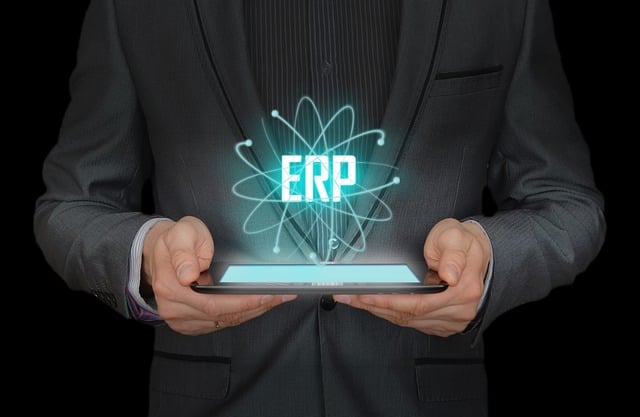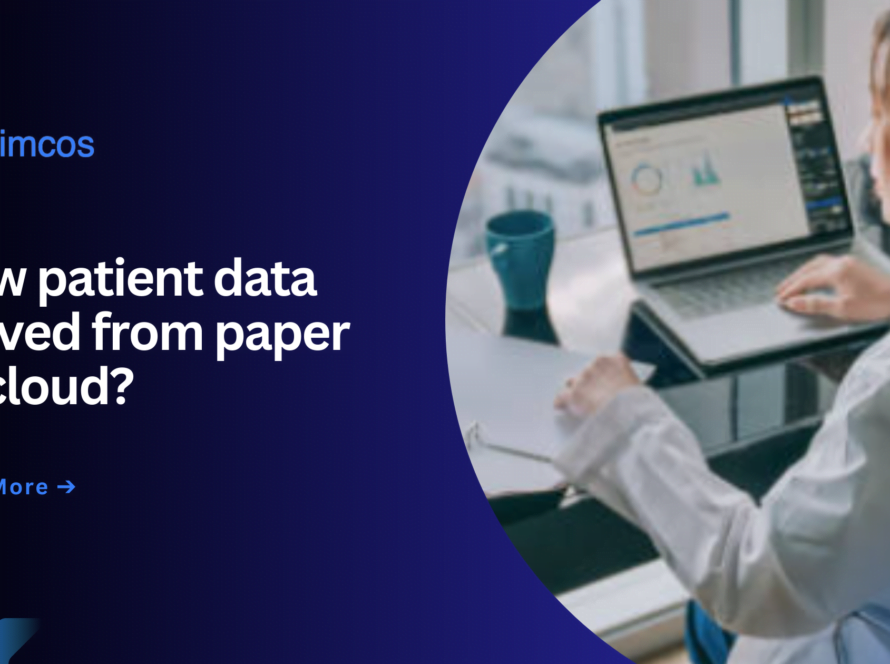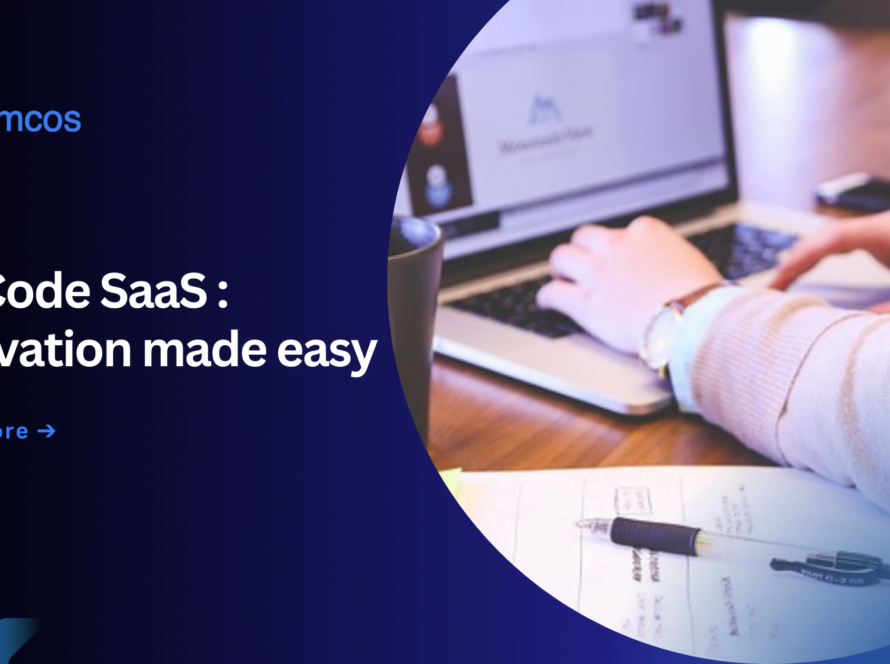The new technology Construction Software as a Service (SaaS) has emerged as one of the defining developments in construction project management. These platforms are helpful since the important functions including planning, progress and documents are found in a single place due to cloud based solutions offered. This integration makes project data available in real-time; increases cooperation among project participants; and allows for the tracking of and making of modifications to, the project’s budget and its progress regardless of location.
The benefit like easy access to information, relatively cheap in terms of initial investment, easy to scale as per the requirements and secure as compared to traditional methods, tools such as Procore and Buildertrend are transforming the way construction management is done. There is increased effectiveness when these SaaS platforms are integrated with ERP as it enhances project management and efficiency in the execution of complicated constructions.
Table of Contents
What are construction SaaS platforms ?
Construction SaaS means Software as a Service. It consists of cloud-based tools built to facilitate and enhance many facets in the process of managing construction projects. This includes planning, tracking of activities, document management and communication within one integrated system. They provide real-time access to project information, collaboration of teams, budget management and tracking of progress with ease from any location.
Other advantages include added accessibility, cost-effectiveness, scalability and increased security. Various examples are Procore and Buildertrend, which support construction professionals in managing tasks, sharing documents and maintaining an overview of the projects, leading to a well-organized venture with positive success.
What is ERP in construction SaaS ?
ERP in construction SaaS is a type of software solution that is used for constructing enterprise business functions as a cloud solution in a commonly specific for construction industry functions such as project management, financial management, resource management, procurement and human resource. It concentrates all activities, offers direct access to accurate information, which improves decision making and activity rates.
Through the elimination of manual and repetitive modes of processing and simplification of organizational activities, ERP systems enhance organizational efficiency through attaining lower costs. The cloud base deployment mechanisms of SaaS make it easier to accommodate a team because the system is accessed remotely. This total integration is important for successful operations of large construction projects in that it draws different segments of the business venture into one striving unity for efficient functioning.

Benefits of ERP in Construction SaaS
ERP in Construction SaaS offers centralized, real-time management of projects and resources, enhancing efficiency, scalability and collaboration while streamlining financial and operational processes.
• Centralization
Single point solutions to work management with ERP for construction SaaS implies consolidation of all business processes including project handling, accounting, purchasing and including resource planning and tracking etc. This has done away with the numerous and disjointed applications thus leading to integration of processes, accurate information dissemination and depiction of higher efficiency since everything referring to the business is well captured.
• Real-Time Access
Real-Time Access in construction Software as a Service (SaaS) refers to the ability of an organization’s stakeholders to access a construction software system from any place. This makes it possible for all decision making processes to reflect the most current data thus improving the accuracy and responsiveness of decisions made. Through operations under this model, teams are able to deliver their duties effectively and keep projects running despite distantly located teams.
• Scalability
While specializing refers to the ability of SaaS based ERP solutions to expand in tandem with the growth of a firm. It is flexible enough to support new projects, users & locations without significant changes to its infrastructure & investment. One of the benefits of this flexibility is the ability of ERP systems to grow and change in compliance with company requirements for the system.
• Improved Efficiency
General benefits of increasing efficiency in the SaaS based ERP systems include optimization of business processes, use of automation techniques and control of resources. Automating procedures helps to decrease the amount of errors that occur as well as increasing the speed of work; in addition, efficient work flows help to enhance the operations. The general practice of resourcefulness makes it possible to manage the resources in the right manner. Combinedly, all these features increase productivity and reduce cost of operations bringing about efficient business operations.
• Enhanced Collaboration
Integration of communication improves interaction as well as information sharing between departments and teams within the SaaS based ERP systems. Another advantage of this strategy is that it increases cooperation since all the participants are connected to a single source. Therefore, the projects are directed in a better way, decisions are made more quickly and the results of the projects are optimized by a successful collaboration of different teams.

How is ERP Transforming Construction SaaS Platforms?
ERP revolutionizes construction SaaS by integrating project management, financials, resource allocation, supply chain and collaboration, leading to enhanced efficiency and decision-making
• Comprehensive Project Management
Construction activities are numerous; they include many tasks as well as expected and expected time frame to complete the tasks and involve many parties. The systems within construction Software as a service (SaaS) include ERP that allow a single system to manage all the business aspects in construction from planning to implementation. Based on the integration between project management and the company’s financial and material resources available in ERP, project time, cost and resources are aligned.
This integration provides real-time tracking of projects’ performance, of the problems that might occur, or the decisions that are or should be made. This leads to better coordination, minimized slippages and enhanced manageability of both the project deliverables as well as the cost; thus, optimizing the achievement of project objectives and goals towards efficient accomplishment of the projects.
• Streamlined Financial Management
Site specific finances are difficult to manage especially across several construction projects. ERP systems attend to this by providing one platform where all the financial activities such as the budgeting, billing, payroll and expenses are well monitored and dealt with. It also ensures the financial data of the various projects and business units are more visible in real-time to project managers and executives, hence, facilitates the tracking of the cash flow, the assessment of profitability and ultimately, checks for the occurrences of cost overruns.
When financials are integrated with other ERP modules such as procurement and inventory, then these systems are more accurate and effective. This integration helps in efficient synchronisation of accounting with the other activities in the organisation, which in turn results in effective financial management, minimisation of errors and management of the financial aspect of a project. This provides greater profitability of a project and project’s financial status, as well as more accurate budgeting and financial prediction.
• Efficient Resource Allocation and Management
The efficient use of resources is highly important during construction projects especially with regard to labour, material and machinery. Resource management in the Construction Software as a Service (SaaS) platforms is improved by the ERP systems that provide tools to monitor and manage the resources. These systems offer information on resource status and usage in the real-time, allow managing resource distribution in the construction companies, reduce wastage and increase efficiency.
Furthermore, in terms of finances, different resources’ requirements depending on project timescales and prior instances, is predicted using ERP systems, avoiding issues that interrupt a project’s completion timescale. It is noteworthy that this proactive approach to resource management is beneficial not only for enhancing operation effectiveness but also for constructing better performing plans on project construction.
• Supply Chain and Procurement Management
In construction where dependability of the supply chains is critical due to material delivery disruptions influences the price, Traditional procurement activities are thus revolutionized by ERP systems by providing real time visibility of procurement activities. These systems help in the generation of purchase orders while checking the performance of the suppliers and the stock required to support production but at the same time avoiding excess stock.
These systems connect procurement with other modules present in ERP such as finance and project management and thus smoothens the supply chain. This integration helps in coordination in procurement processes by avoiding time wastage hence achieving time efficiency. Consequently, construction companies are better placed to control supply chain disruptions hence, gaining efficient control over material procurements in order to achieve project timelines.
• Enhanced Collaboration and Communication
The ability of conveying information and coordination is important for construction projects whereby most often a construction project entails multi-disciplinary teams, contractors and supplies. Construction ERP software as well as construction SaaS solutions integrate collaboration as information is shared on one platform making it easily accessible to all stakeholders.
This saves one from making assumptions and hence leads to an efficient working relationship that is in tune with the projects’ objectives and time frame. The system enables easy sharing of project updates, papers and tasks which makes it easier to report on progress made within the organization. ERP enables real time communications and consolidated databases; flow of work and project management enhances hence better project performance.
• Data-Driven Decision Making
In today’s world, it is very important to make the right decision based on real-time information to sustain competitiveness. Some of them involve procurement of raw materials, goods, services and even construction equipment, maintenance of assets and fixed installations and many others, ERP systems in construction software as a service (SaaS) platforms outcompete other regular systems in the management and analysis of data across the business functions.
This form of data collection is very useful in offering information on the performance of the project, the financial situation of the organization, the usage of resources among many others. These insights help the construction companies to acknowledge tendencies, identify future concern areas and take actions to improve the firm’s workflow and revenue. By having access to accurate and real-time data all in one place, every level within an organization is enhanced with strategic planning for each project that is being worked on.
The adoption of ERP within Construction SaaS solutions is revolutionizing the construction value chain since it improves the construction operations and performance during the project planning, execution and closing. They consolidate project related processes, improve the financial activities, utilization of resources and control of supplies. They also promote increased cooperation and information sharing and support outcomes that are based on facts and statistics.
The multiple functions and processes that exist in a company are integrated under one platform in the ERP systems and the functionality and real time information leads to better project delivery , controlling the costs and increased productivity. The advancement of construction projects and the engagement of complex systems in managing construction projects will further necessitate the use of ERP in SaaS in providing a successful, timely and cost effective manner.

How does Himcos help?
Himcos specializes in SaaS app modernization, offering top-tier expertise to transform your software. Our team ensures exceptional quality by improving performance, reducing costs, enhancing security and fostering innovation. We deliver scalable, secure and high-performing applications tailored to your needs, helping you stay competitive in a rapidly evolving market.



